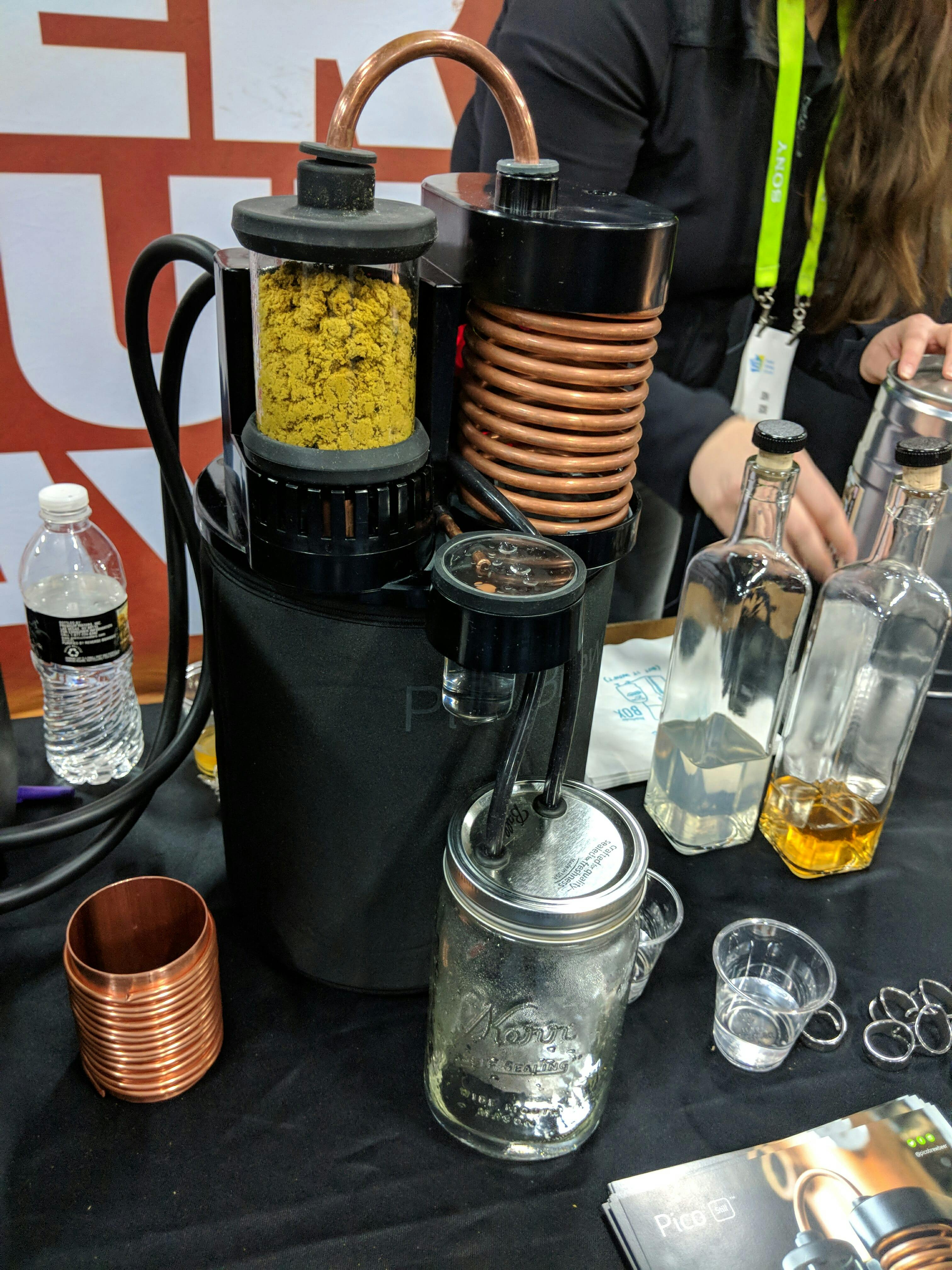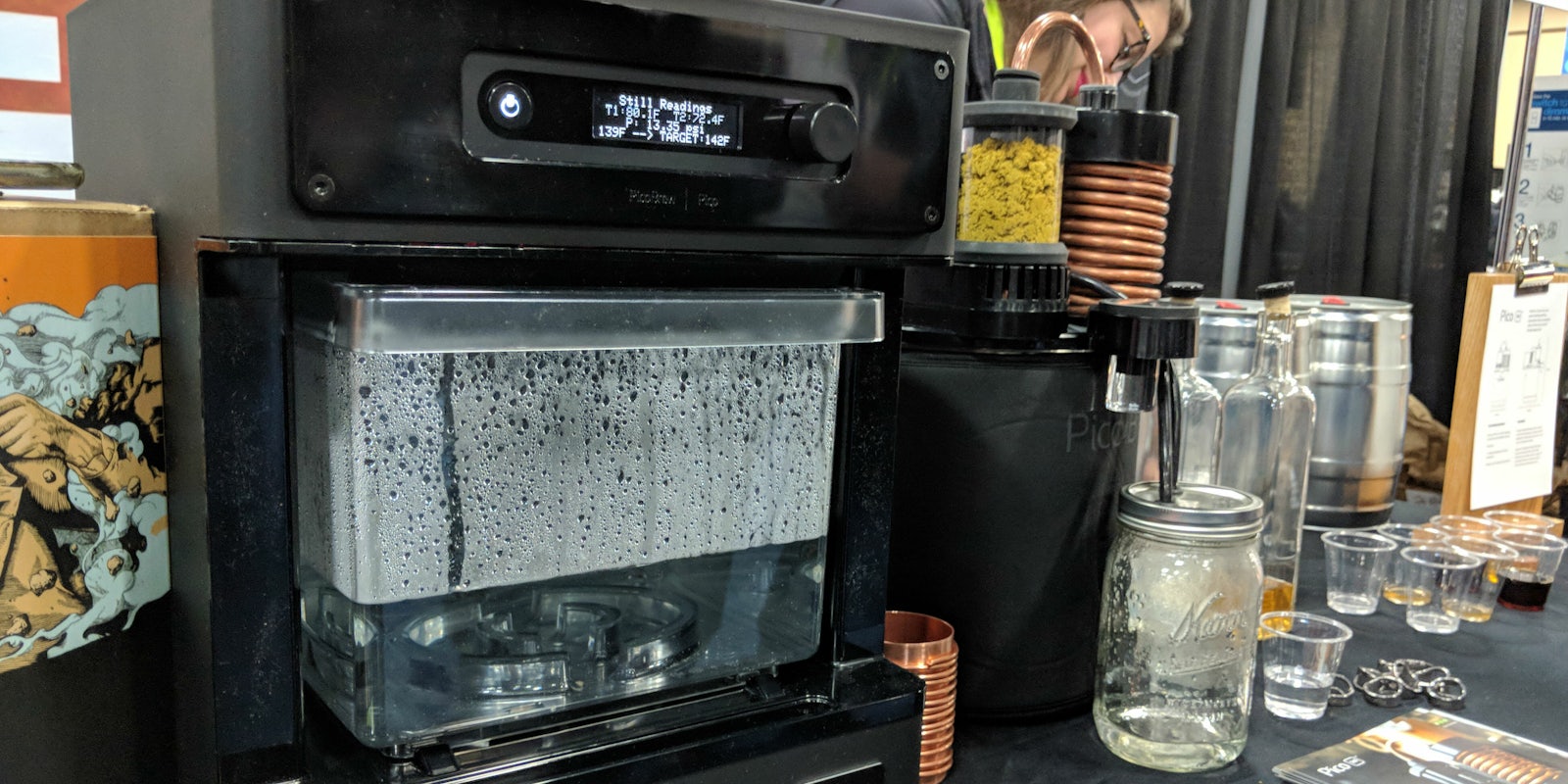The most delicious alcoholic beverage I tasted at CES 2018 didn’t come from any of Vegas’ world-renowned restaurants or bars. It was made by a homebrewing accessory.
“Gin or bourbon?” I was asked at the pre-event showcase. Not a big fan of either, I chose gin only because I couldn’t remember how much I didn’t like it. Turns out, it’s not that bad. In fact, the small sample made by the PicoStill home distilling machine tasted pretty damn good. It was smooth, had a rich, deep flavor and ended with just the right amount of bite.
But before you get excited about making your own booze, there’s one important restriction you need to be aware of: In the U.S., you need a special license to distill spirits at home. Professional distilleries carry that important permit, but it’s not something the average consumer can or would want to obtain. However, you can still use the PicoStill to extract hops or distill water.

Extracting hop oils is one of the more difficult tasks when brewing beer. Because it doesn’t boil the hops, the technique—known as dry hopping—extracts the aroma from the oils without adding any bitterness. It is used to give beer a floral flavor like what you taste in some pale ales and IPAs.
If PicoStill sounds familiar, it’s because you may have heard about PicoBrew, the Kickstarter success that has released several “Pico” home beer brewing machines over the past few years. The PicoStill is its newest product and is an add-on accessory to the Pico C, the company’s least expensive ($550) homebrewing device. It sits on top of the keg and connects to it through hoses.
It’s surprisingly easy to use PicoStill for whatever legal purposes you have planned. Once you add water to the Pico C, the PicoStill will start heating up a separate container that gets fed through coils on the keg. Once the water reaches the correct temperature, its vapors get sent through the hops to extract their oils. The entire process supposedly takes less than an hour, an impressive feat considering dry hopping can take a week.
For what it’s worth, I tried a sample of IPA (again, not my thing) that was made in the Pico C and it tasted stop-on: bitter, hoppy, grass-like. It was pleasantly a bit sweeter and smoother than most IPAs I’ve tried.
You can pre-order the PicoStill for $250 today. It will MSRP for $350. The company hasn’t announced a release date.


